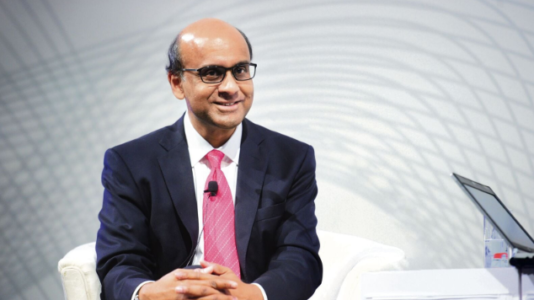The significance of the Presidential Election goes beyond just an extra public holiday.
As Singapore’s Presidential Election approaches, candidates like George Goh, founder of Harvey Norman Ossia, are stepping into the spotlight. Dressed in a sharp suit and vibrant pink tie, Goh confidently answered questions from the press on June 13 as he collected his eligibility forms. Typically private, the businessman appeared at ease, facing public scrutiny like a seasoned pro. Yet, if deemed eligible, he’ll face an uphill battle against Senior Minister Tharman Shanmugaratnam, a figure with a well-established public profile and a distinguished career in the public sector.
Tharman, formerly the Chief Economist and Managing Director of the Monetary Authority of Singapore, is widely respected and seen by many as a prime candidate for the role. On the other hand, Goh, despite his substantial business background, remains a relative unknown to many Singaporeans due to his low public profile. This year’s election, however, offers Singaporeans a rare scenario in which, regardless of the outcome, they feel they cannot lose.
A victory for Tharman might fulfill the hopes of many who wanted him as Prime Minister, while a win for Goh would signify a fresh, non-establishment perspective. Added to this is the prospect of an extra public holiday if the election is contested, softening the pressure of voting for what is often perceived as a ceremonial role.
Yet, reducing the election to a day off or a ceremonial exercise diminishes the democratic values it represents. While the President’s role may be symbolic, Singapore’s choice still matters—it’s about selecting a figure who embodies the nation’s identity and values, not just an extra holiday. This election could be a chance for Singaporeans to deepen their engagement with democratic processes, reaffirming that their votes count, even for roles that may seem purely ceremonial.








